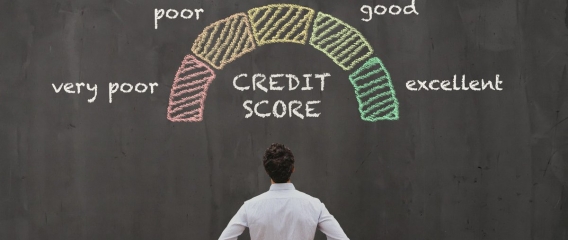3 Ways a Divorce Can Impact Your Credit Score
There is no question that divorce can significantly upend your life. Even your credit score is at risk of divorce’s negative impact. A solid credit score that took years to build can be undone quickly following the approval of your divorce order. This can have repercussions on your ability to rent or buy a home, obtain a car, or even find employment.
Knowing how a divorce settlement or divorce decree can affect your credit score can help you make more informed decisions throughout your divorce proceeding.
1. A Joint Account Is Still a Joint Account
If you and your spouse opened up a joint credit line during your marriage, it could be difficult to change this after the divorce. Even when the court gives you or your spouse exclusive responsibility for repaying a joint debt, credit card companies and lenders do not always honor or follow divorce decrees.
Suppose that your spouse is ordered to pay a joint obligation, but you are unsuccessful in detaching yourself from the loan. In this case, your spouse’s repayment history will also be your history. Your credit will benefit if they pay the obligation timely. If not, your credit will suffer from their missed payments.
2. Divorce Does Not Dismantle Authorized Users
In a similar way, suppose that you added your spouse as an authorized user to your credit accounts while married. Divorce will not automatically end this arrangement. If you do not contact your lender or credit card issuer and have them remove your spouse as an authorized user, your spouse will continue to have access to your account after the divorce.
If your divorce is contentious or your spouse is vindictive, they could use this access to run up debts that you would be legally obligated to pay. A high credit utilization ratio or missed payments will damage your credit score. If the lender eventually charges the account off, expect more damage to your credit history.
3. Refinancing a Loan Can Ding Your Credit
If you find yourself solely responsible for a mortgage, car loan, or other debt, you may find it necessary to refinance that obligation. The act of applying for a new loan could lower your credit score. Your debt-to-income ratio will also likely increase, which can cause additional damage to your credit score.
Fortunately, any such harm caused by refinancing should be temporary. Regular, on-time payments will also help mitigate the impact of refinancing.
An Experienced Michigan Family Lawyer Can Help You
There is no way to guarantee that your divorce will have no impact on your credit score. However, going through the divorce process with a knowledgeable divorce attorney can help you avoid unnecessary damage and plan for the harm that you are unable to avoid.
Gucciardo Family Law is available to help Michigan residents successfully navigate the treacherous waters of their divorce proceedings. Contact us today and learn how our resources and knowledge can help you in your situation.
Too much information?
We focus exclusively on family law matters so we are always available to answer your questions and help.



















Leave a Reply